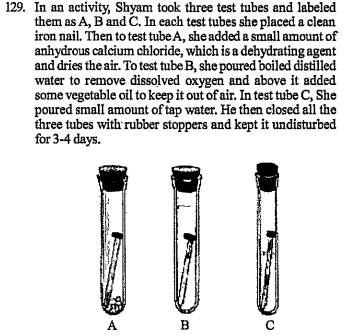Which of the following statements is correct?
If f(x) is an odd function, then g(x)=∫xaf(t)dt is an even function.
If f(x) is an odd function, then g(x)=∫xaf(t)dt is also odd.
If f(x) is a periodic function, then g(x)=∫xaf(t)dt is also periodic.
If f(x) is periodic, then g(x)=∫xaf(t)dt is always non - periodic.
The correct Answer is:A
To solve the question of which statement is correct regarding the properties of functions after integration, we will analyze each option step by step.
1. Understanding Odd Functions:
- An odd function f(x) satisfies the condition f(−x)=−f(x).
- Example: f(x)=sinx.
2. Evaluating Option 1:
- If f(x) is an odd function, we want to check if g(x)=∫f(x)dx is an even function.
- Integrating an odd function from −a to a gives zero, which indicates symmetry about the y-axis.
- Therefore, g(−x)=∫f(−x)dx=−∫f(x)dx=−g(x) implies g(x) is even.
- Conclusion: This statement is correct.
3. Evaluating Option 2:
- If f(x) is an odd function, we check if g(x)=∫f(x)dx remains odd.
- As shown in the first option, integrating an odd function results in an even function.
- Conclusion: This statement is incorrect.
4. Evaluating Option 3:
- If f(x) is periodic, we need to check if g(x)=∫f(x)dx is also periodic.
- For example, let f(x)=sin2x (which is periodic).
- The integral g(x)=∫x0sin2tdt does not maintain periodicity due to the linear term introduced by integration.
- Conclusion: This statement is incorrect.
5. Evaluating Option 4:
- If f(x) is periodic, we check if g(x)=∫f(x)dx is non-periodic.
- Using f(x)=sinx, we find that g(x)=−cosx is periodic.
- Conclusion: This statement is incorrect.
Final Conclusion:
The only correct statement is Option 1: If f(x) is an odd function, then g(x) (the integral of f(x)) is an even function.
- An odd function f(x) satisfies the condition f(−x)=−f(x).
- Example: f(x)=sinx.
- If f(x) is an odd function, we want to check if g(x)=∫f(x)dx is an even function.
- Integrating an odd function from −a to a gives zero, which indicates symmetry about the y-axis.
- Therefore, g(−x)=∫f(−x)dx=−∫f(x)dx=−g(x) implies g(x) is even.
- Conclusion: This statement is correct.
- If f(x) is an odd function, we check if g(x)=∫f(x)dx remains odd.
- As shown in the first option, integrating an odd function results in an even function.
- Conclusion: This statement is incorrect.
- If f(x) is periodic, we need to check if g(x)=∫f(x)dx is also periodic.
- For example, let f(x)=sin2x (which is periodic).
- The integral g(x)=∫x0sin2tdt does not maintain periodicity due to the linear term introduced by integration.
- Conclusion: This statement is incorrect.
- If f(x) is periodic, we check if g(x)=∫f(x)dx is non-periodic.
- Using f(x)=sinx, we find that g(x)=−cosx is periodic.
- Conclusion: This statement is incorrect.
The only correct statement is Option 1: If f(x) is an odd function, then g(x) (the integral of f(x)) is an even function.
Topper's Solved these Questions
Similar Questions
Knowledge Check
Which of the following statement is correct?
ANon renewable resources can never be replaced once they get used upBNon renewable resources can be replaced in million of yearsCNon renewable resources can be replaced in 50-100 years.DNon renewable resources can be replaced in 100-200 yearsWhich of the following statement is correct?
AMahakali Temple is famous for Sun MandirBMahakali Temple is famous for Kali MandirCMahakali Temple is famous for Shiv MandirDMahakali Temple is famous for Laxmi MandirWhich of the following statement is correct?
AEarth has the largest number of satellitesBMars has the largest number of satellitesCJupiter has the largest number of satellitesDUranus has largest number of satellites

